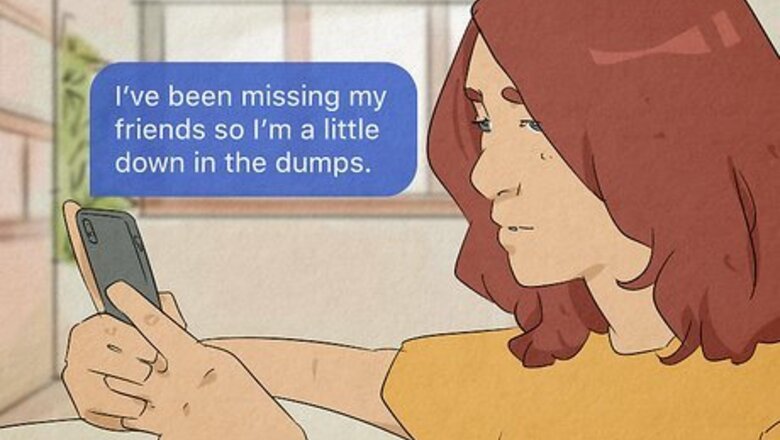
views
Voice the emotions you’re feeling.
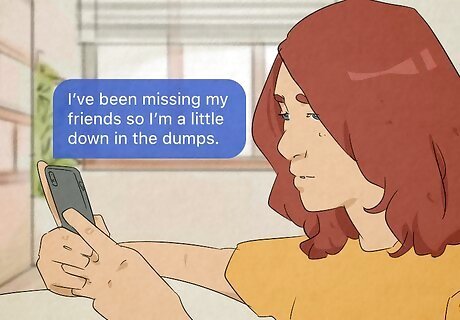
Say exactly what’s on your mind so it’s clear to the other person. The tone in a text can be really confusing sometimes, so say how you’re feeling right at the start of the message. Let the person know that you’re feeling sad, and give them a brief explanation for what’s causing your mood. Try using words like “unhappy,” “upset,” “lonely,” “down in the dumps,” or something similar. Some examples could be: “I’ve been feeling pretty sad about the breakup recently,” “I’m upset that I don’t get to go to the dance anymore.” “I’ve been missing my friends so I’m a little down in the dumps.”
Describe what made you sad.
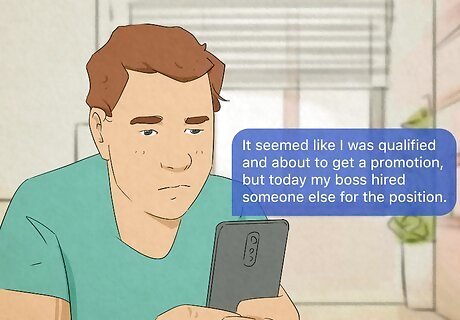
If you’re upset about a specific thing, explain it in detail. Go over the situation that put you down in the dumps. You can go into as much or as little detail as you want, but tell the other person enough that they understand your feelings. Stick to the facts of what actually happened rather than assuming someone else’s intentions. Some things you might say include: “The breakup has just been hard on me. I thought things were going really well, but then they ended it last night out of nowhere.” “It seemed like I was qualified and about to get a promotion, but today my boss hired someone else for the position.” “I haven’t been able to see my friends in person at all over the past year, and I really miss spending time with them.”
Use “I” statements.
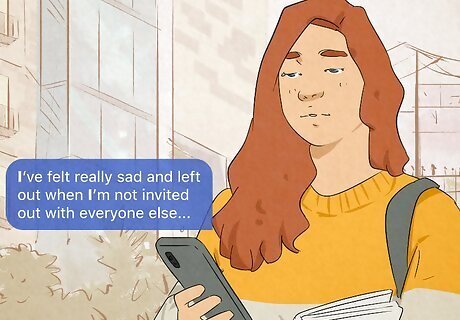
Starting with “I” keeps you from blaming another person. If you start a sentence with “you,” it could sound like you’re personally attacking the other person. Instead, focus on how you felt in the moment and explain why it made you upset. If you’re talking directly to the person that made you sad, they’ll understand how their actions hurt you without feeling like you’re accusing them. Some good texts to send could be: “I’ve felt really sad and left out when I’m not invited out with everyone else.” “I put in a lot of effort at work, and I’m upset that I wasn’t considered for the promotion.” “I feel depressed because I feel like my opinions aren’t considered.”
Add a few sad emojis.
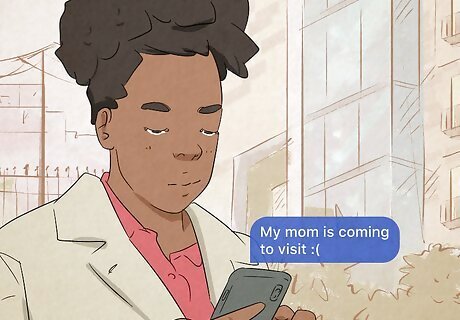
Emojis and emoticons help convey the tone of your message easier. People usually determine the tone of a conversation through body language, but you lose that over text. If your message could be taken positively or negatively, put a sad-face emoji in your message somewhere so it’s clear how you’re feeling. Some messages you could send include: “My mom is coming to visit :(” “I really wish my dad could have seen this :’( He would have loved it.” “I had to stay home from school today ????”
Communicate your needs.
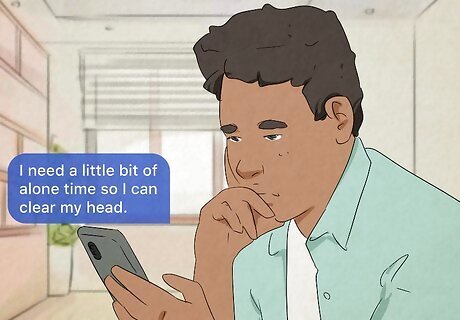
Say exactly what you’ll need to help you feel better. Everyone needs something a little different depending on what makes you sad and how you prefer to handle situations. You know yourself best, so think about what will cheer you up or help you move on. Be sure to tell the person everything you need in your message so they can keep helping moving forward. “I need a little bit of alone time so I can clear my head.” “I just want someone there to listen to me while I vent.” “I could really use a break to help me recollect my thoughts.”
Tell the person if there’s something they can do.

Let the other person know how they can help so they feel involved. You can ask someone to do something regardless of if they’re the ones that made you sad or not. Explain exactly what the person can do so they have an actionable way to help you out. Everyone has different needs, so what you ask for will be pretty specific to your situation. Some things you might try saying include: “I would appreciate it so much if you checked in with me every once in a while,” if you’re sad the person doesn’t talk to you anymore. “Would you mind hanging out for a little while? I just need to be with someone right now.” “Could you ask me for my opinion before making a decision next time?” if you’re upset about a choice the person made.
Mention the importance of the conversation.

Tell the other person the topic matters to you so they take it seriously. If the person you’re talking to doesn’t know what you’ve gone through, make it clear how important talking about it means for you. That way, your friend or family member will know not to joke around and be more receptive to what you have to say. You might try sending messages like: “This is a pretty heavy topic for me, and I trust you enough to open up about it.” “The past few days have been really tough for me, so I really appreciate you being open to chatting.” “I really value our friendship and I want us to stay close, so I need to say what’s on my mind,” if the person you’re texting is the one that made you sad.
Apologize if they’ve reached out and you haven’t responded.
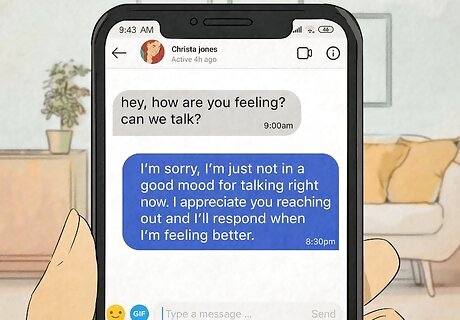
Let people know you weren’t ignoring them if they reached out first. It’s okay if you don’t have the energy to reply to texts right away if you’re feeling down, but you should respond eventually. Tell the person you’re sorry for not responding and explain that you haven’t been feeling the greatest. They’ll understand that you need some time to process your feelings and will reach out when you feel ready. Some texts you could send include: “Hey, thanks so much for reaching out. I’m sorry I haven’t responded, but I just haven’t had the energy to talk right now. I just need some to myself for a little while.” “I’m sorry, I’m just not in a good mood for talking right now. I appreciate you reaching out and I’ll respond when I’m feeling better.” “I’m so sorry, I’m not trying to ignore you! I’ve felt a bit sad and depressed lately, and I’ve been trying to deal with that. Let’s catch up soon though.”
Open up as soon as you feel sad.

Speaking out early prevents you from getting more stressed or upset. When you keep your feelings to yourself, they could start to feel overwhelming over time. As soon as something upsets you, make it a point to talk to someone as soon as you can since it helps calm you down. Share how you’re feeling right away in case you need to confront any issues. If you’re sad or upset about something that someone did, tell them as soon as you recognize how you’re feeling so they don’t hurt your feelings more.
Talk to someone you trust.

A friend or family member whose understanding can help validate your feelings. Avoid going to someone who puts you down or isn’t willing to listen to you. Instead, look for someone you know that you’re really close to and open to having a difficult conversation, such as a parent, relative, or best friend. Have them listen to you without interrupting and ask for their advice if you want it. Treat your feelings like they’re a fragile piece of glass. Only open up and share your feelings with people that you think will take care of them. It might help to find someone who’s gone through a similar experience since they’ll be more empathetic. Reader Poll: We asked 601 wikiHow readers who they go to when they need to talk through a personal issue, and 62% said that they reach out to their best friend for support and understanding. [Take Poll] So if you're not sure who to reach out to, your closest friends might be a great place to start.












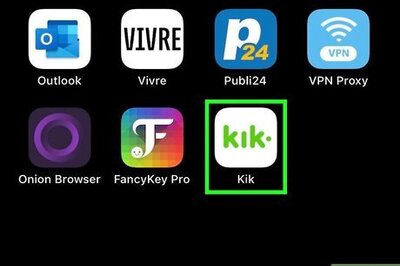






Comments
0 comment